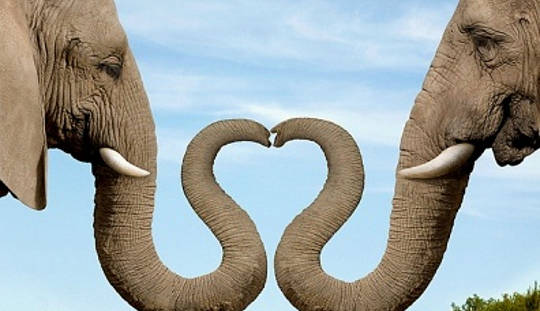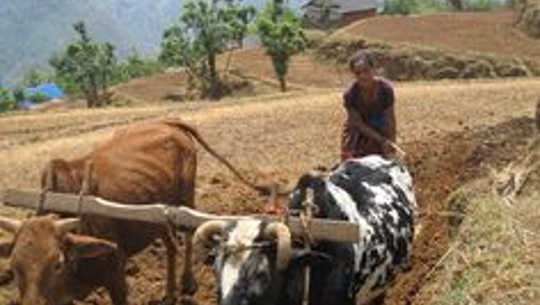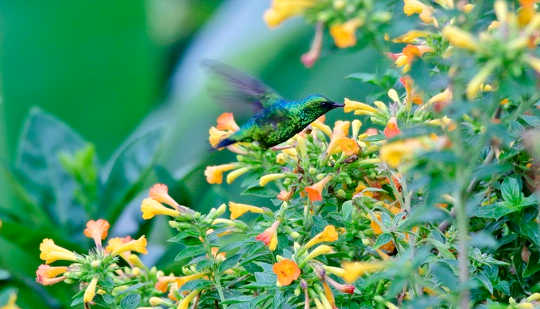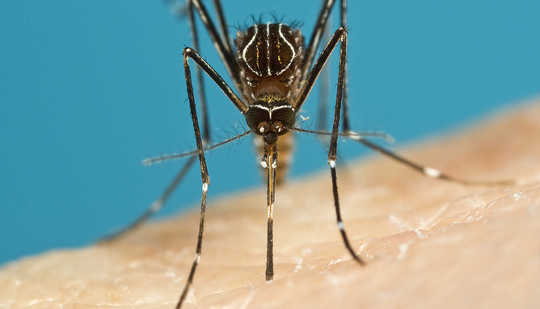- Stuart Shalat, Professor and Director of the Division of Environmental Health, School of Public Health, Georgia State University
- Read Time: 7 mins
Lead can linger in bones.
The ongoing water crisis in Flint, Michigan has highlighted just how harmful lead contamination is. What you may not realize, however, is that lead exposure is a problem throughout the U.S.
The Centers for


 Sydney’s first Muji store opened in 2015 and with it came attractive minimalism, simplicity, and functionality – a kind of consumption that was somehow about consuming less.
Sydney’s first Muji store opened in 2015 and with it came attractive minimalism, simplicity, and functionality – a kind of consumption that was somehow about consuming less. Can dogs tell when we are happy, sad or angry? As a dog owner, I feel confident not only that I can tell what kind of emotional state my pets are in, but also that they respond to my emotions. Yet as a hard-headed scientist, I try to take a more rational and pragmatic view. These personal observations seem more likely to result from my desire for a good relationship with my dogs.
Can dogs tell when we are happy, sad or angry? As a dog owner, I feel confident not only that I can tell what kind of emotional state my pets are in, but also that they respond to my emotions. Yet as a hard-headed scientist, I try to take a more rational and pragmatic view. These personal observations seem more likely to result from my desire for a good relationship with my dogs. The environmental and nutrient impact of our food choices had been on my mind for several weeks when a year-old article in the Telegraph recently came to my attention, prompting me to assemble the thoughts that had been gradually coalescing.
The environmental and nutrient impact of our food choices had been on my mind for several weeks when a year-old article in the Telegraph recently came to my attention, prompting me to assemble the thoughts that had been gradually coalescing. Christmas is typically a time for celebrating and spending time with loved ones. But while we party, give lavish presents, and visit our families, we can sometimes overlook how some very important family members — our pets — might be affected.
Christmas is typically a time for celebrating and spending time with loved ones. But while we party, give lavish presents, and visit our families, we can sometimes overlook how some very important family members — our pets — might be affected. More than half the planet’s population now live in cities, with limited access to the natural world. For Europe and Latin America, the figure is more than 70%. Yet contact with nature has numerous benefits for both our physical and mental health.
More than half the planet’s population now live in cities, with limited access to the natural world. For Europe and Latin America, the figure is more than 70%. Yet contact with nature has numerous benefits for both our physical and mental health. Carbon Monoxide is a much-publicised invisible killer. But there’s another little-known gas that kills 27 times more people, causing the deaths of
Carbon Monoxide is a much-publicised invisible killer. But there’s another little-known gas that kills 27 times more people, causing the deaths of  Anyone who’s watched a cat throwing up after munching on grass knows that our feline friends aren’t natural plant eaters. So you might be surprised to discover that these carnivorous animals share some important genes that are more typically associated with herbivores. And this might help explain why cats aren’t always easy to please when it comes to food.
Anyone who’s watched a cat throwing up after munching on grass knows that our feline friends aren’t natural plant eaters. So you might be surprised to discover that these carnivorous animals share some important genes that are more typically associated with herbivores. And this might help explain why cats aren’t always easy to please when it comes to food. The director had said the trainers "love" their elephants. "How could they treat them that way?" I asked. My question expanded to, "How can people do all the awful things they do to each other and to animals?" I began to try to feel compassion for...
The director had said the trainers "love" their elephants. "How could they treat them that way?" I asked. My question expanded to, "How can people do all the awful things they do to each other and to animals?" I began to try to feel compassion for... Concerns about environmental damage caused by costly chemicals and worries about climate change are altering farming methods in the mountains of Nepal.
Concerns about environmental damage caused by costly chemicals and worries about climate change are altering farming methods in the mountains of Nepal.
 Hummingbirds live life at incomprehensible speeds. Their flight acrobatics are amazing, maneuvering more like insects than birds as they flit around, flying upside down and even backwards. They’re a blur as they race between flowers. When they do pause to visit a flower momentarily, they’re licking 15 to 20 times a second to extract their nectar fuel.
Hummingbirds live life at incomprehensible speeds. Their flight acrobatics are amazing, maneuvering more like insects than birds as they flit around, flying upside down and even backwards. They’re a blur as they race between flowers. When they do pause to visit a flower momentarily, they’re licking 15 to 20 times a second to extract their nectar fuel. Have you ever snapped angrily at someone when you were hungry? Or has someone snapped angrily at you when they were hungry? If so, you’ve experienced “hangry” (an amalgam of hungry and angry) – the phenomenon whereby some people get grumpy and short-tempered when they’re overdue for a feed.
Have you ever snapped angrily at someone when you were hungry? Or has someone snapped angrily at you when they were hungry? If so, you’ve experienced “hangry” (an amalgam of hungry and angry) – the phenomenon whereby some people get grumpy and short-tempered when they’re overdue for a feed. Over the past ten years in the United States, unconventional gas and oil drilling using hydraulic fracturing, or fracking, has experienced a meteoric increase. Since well drilling requires an influx of water, materials and workers into yotherwise rural and remote areas, the question has been: could air, water and noise pollution negatively impact on the health of nearby residents?
Over the past ten years in the United States, unconventional gas and oil drilling using hydraulic fracturing, or fracking, has experienced a meteoric increase. Since well drilling requires an influx of water, materials and workers into yotherwise rural and remote areas, the question has been: could air, water and noise pollution negatively impact on the health of nearby residents?
 After a day of stress, of decision making, of kid's fights to referee -- when your body is tense and depression is knocking at your mind's front door...what could possibly be the ticket to relief? Could it be as simple as stepping outside to gaze at the night moon?
After a day of stress, of decision making, of kid's fights to referee -- when your body is tense and depression is knocking at your mind's front door...what could possibly be the ticket to relief? Could it be as simple as stepping outside to gaze at the night moon?